ESG compliance and integration not only help businesses enhance their competitiveness, but also reflect a commitment to responsible and long-term development.
The tobacco industry, which has faced many controversies about its social and public health impacts, is also changing with the times. Many businesses in the industry have begun to adjust their strategies, invest in research, technology and innovate production and consumption models to minimize negative impacts and increase transparency.
Philip Morris International (PMI) is a notable example of this trend, pursuing a development strategy linked to innovation and social responsibility, aiming to reduce the harmful effects of traditional products.
From tradition to sustainability: PMI's journey of internal transformation
Tobacco is a product that is not recommended for use due to its negative impacts on public health. In addition to smoking cessation programs of health agencies, many businesses have been developing harm reduction solutions to minimize risks for those who are not yet able to quit smoking completely.

PMI is one of the early investors in this positive transformation chain. The company has continuously invested in research and development of a portfolio of science- based smokeless alternatives to cigarettes. Some of the group's products have been approved by the US Food and Drug Administration (FDA) to be marketed and sold as "Reduced Risk Tobacco Products - Reduced Exposure".
However, reducing product harm does not stop at improving products. PMI has implemented many measures to prevent youth access to tobacco, including applying age verification technology, standardizing marketing and advertising activities, training retailers, and community education programs. These efforts show that ESG in the tobacco industry is not just a communication tool or formal reporting, but a way for businesses to develop to meet social needs.
On the economic side, PMI aims to improve the livelihoods of its agricultural partners and workers. The traditional tobacco industry relies on tobacco farmers – a group of workers who often live in precarious conditions, earn low incomes and are exposed to many environmental risks. PMI has developed long-term cooperation programs: 99% of cooperative farmers are guaranteed a living income, access to sustainable farming techniques, and are supported with training, occupational safety and social welfare.
Improving environmental quality and governance transparency
According to PMI’s ESG report, by the end of 2024, the group will have achieved a 15% reduction in total CO2 emissions across the value chain, while cutting direct emissions by 39% compared to the 2019 baseline. More than 61% of manufacturing facilities are carbon neutral, and energy, waste management and ecosystem conservation solutions are being implemented synchronously. PMI has set a Net Zero target by 2040, demonstrating a long-term vision for reducing environmental impact.
These efforts not only help reduce emissions and protect the environment, but also create real value for communities and the economy, by promoting green productivity, reducing energy costs, and creating opportunities for sustainable innovation. This is proof that ESG in practice is not just a theory or marketing tool, but an essential part of business operations and development strategy.
The third element of ESG – transparent and accountable governance – is also an important pillar. PMI builds its governance system on the principles of transparent business practices, scientific evidence-based product development, and ensuring human rights throughout the entire value chain.
Public ESG reporting, independent auditing and compliance with international standards help increase social trust and set industry standards. This pioneering work is recognized through prestigious rankings: consecutively ranked in the Top 5 “Net Zero Leaders” of Forbes from 2023–2025 and achieved 74/100 ESG & CSA points in 2025, an increase of 14 points compared to 2020.

A strong commitment and systematic investment in ESG, especially in the areas of environment and product innovation, has helped PMI not only transform itself into a pioneer in the tobacco industry but also build a solid reputation with regulators globally.
To date, 100 markets around the world have officially allowed the circulation of PMI's smokeless products, a clear demonstration of a modern business development model that is responsible, innovative and oriented towards a sustainable future.
Source: https://dantri.com.vn/kinh-doanh/nganh-thuoc-la-trong-ky-nguyen-phat-trien-xanh-va-co-trach-nhiem-20251113175640154.htm



![[Photo] Deep sea sand deposits, ancient wooden ship An Bang faces the risk of being buried again](https://vphoto.vietnam.vn/thumb/1200x675/vietnam/resource/IMAGE/2025/11/13/1763033175715_ndo_br_thuyen-1-jpg.webp)




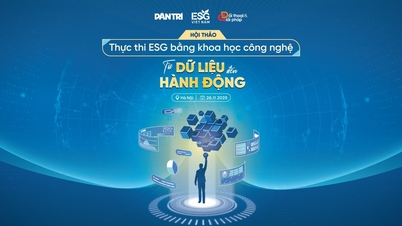





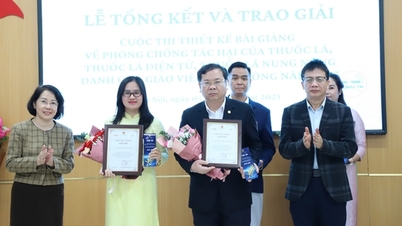

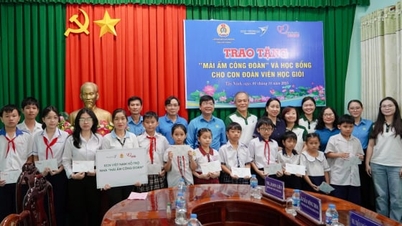



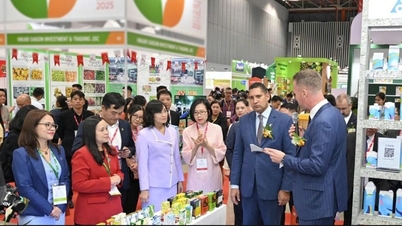







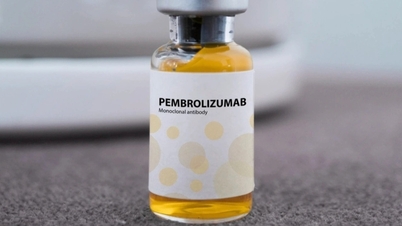


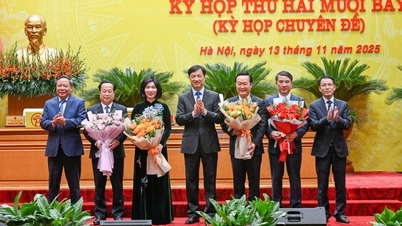







































![[Photo] Panorama of the 2nd Vietnam-Cambodia Border Defense Friendship Exchange](https://vphoto.vietnam.vn/thumb/402x226/vietnam/resource/IMAGE/2025/11/13/1763033233033_image.jpeg)
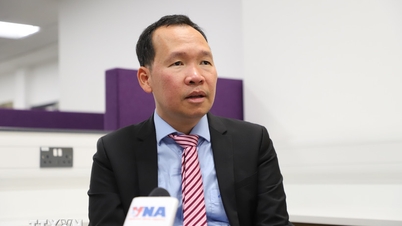
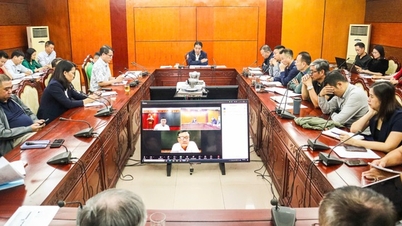
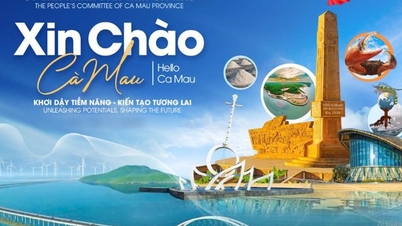
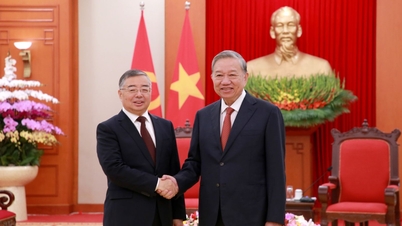

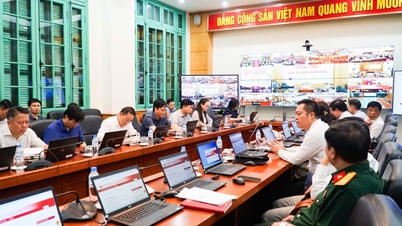

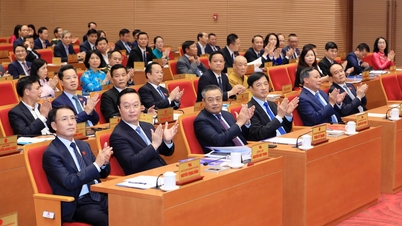




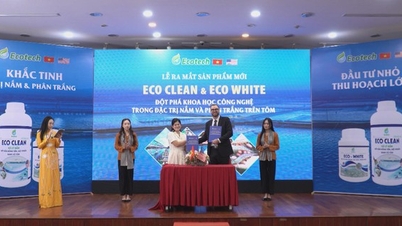









![Dong Nai OCOP transition: [Article 3] Linking tourism with OCOP product consumption](https://vphoto.vietnam.vn/thumb/402x226/vietnam/resource/IMAGE/2025/11/10/1762739199309_1324-2740-7_n-162543_981.jpeg)




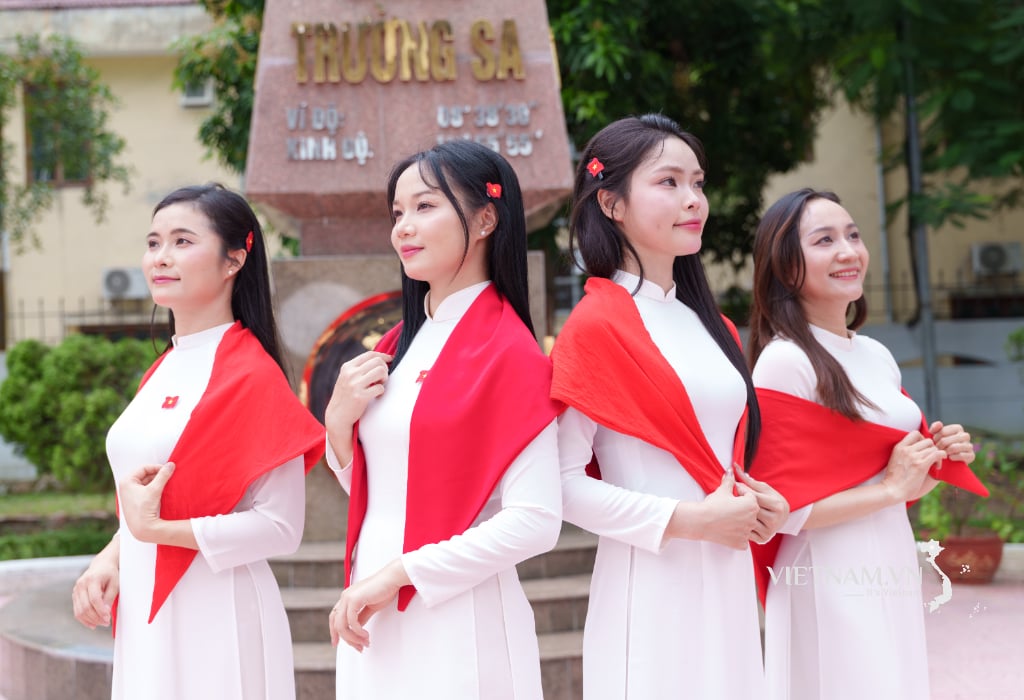


Comment (0)